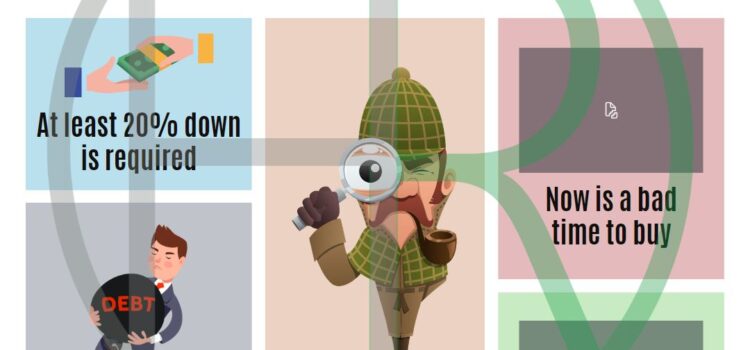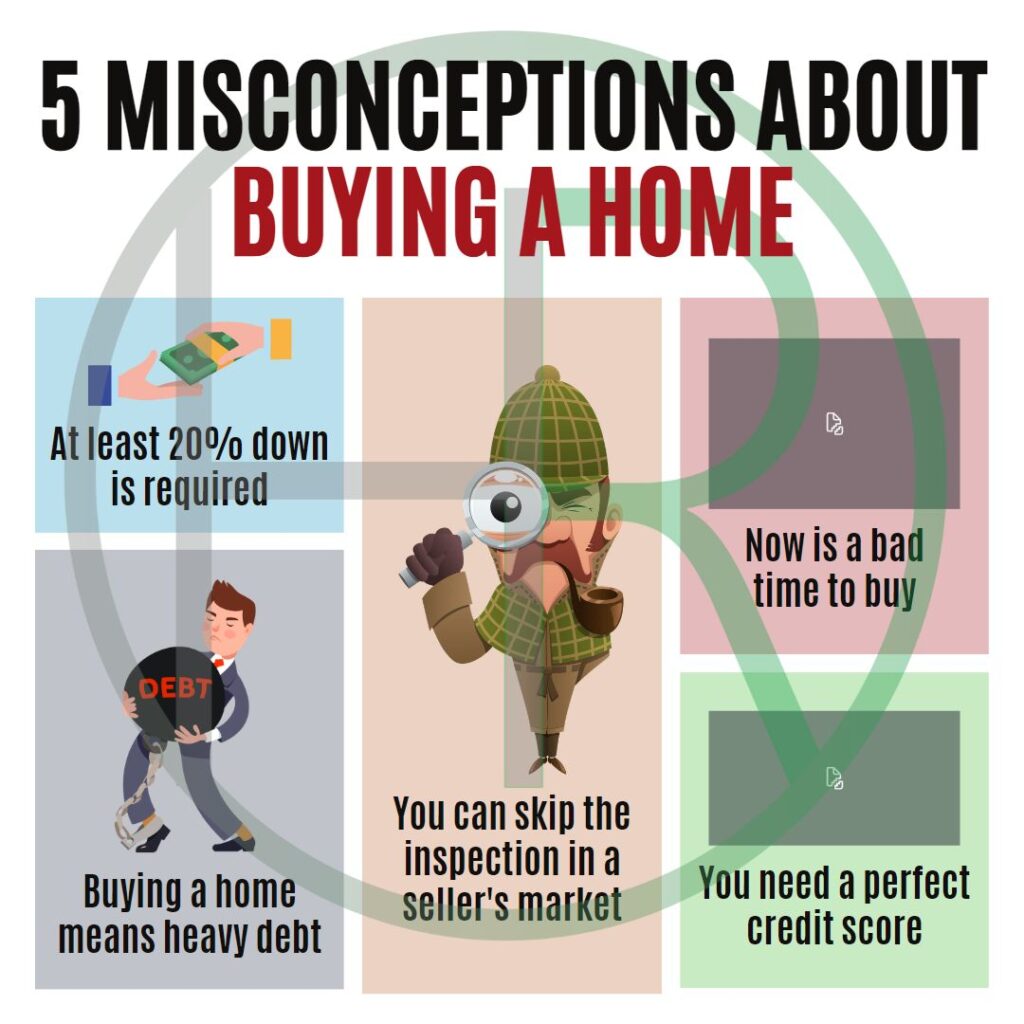
Buying a home is a major financial decision that comes with a lot of myths and misconceptions. It’s important to separate fact from fiction in order to make an informed decision. Here are five common misconceptions about buying a home, debunked:

- At least 20% down is required One of the biggest misconceptions about buying a home is that you need to put down at least 20% of the purchase price as a down payment. While a 20% down payment can help you avoid paying private mortgage insurance (PMI), it is not a requirement. Here are some facts to keep in mind:
- There are programs available that allow you to put down as little as 3% of the purchase price.
- Some programs offer down payment assistance, which can help you cover some or all of your down payment costs.
- PMI can add to your monthly mortgage payment, but it’s not necessarily a deal breaker
- Buying a home means heavy debt Another misconception is that buying a home means taking on a lot of debt. While it’s true that a mortgage is a significant financial commitment, it doesn’t have to be a burden. Here are some things to consider:
- Your monthly mortgage payment will depend on factors like your down payment, interest rate, and loan term.
- It’s important to choose a home that fits within your budget and to avoid taking on more debt than you can comfortably handle.
- Remember that buying a home can also be a good investment, as it can appreciate in value over time.
- Now is a bad time to buy Many people believe that now is a bad time to buy a home, either because of high prices or uncertainty in the market. However, there are still plenty of reasons to consider buying a home, even in a challenging market. Here are some things to keep in mind:
- Interest rates are still historically low, which can make it more affordable to buy a home.
- Home prices may be high, but they are likely to continue appreciating in the long term.
- It’s important to consider your personal financial situation and long-term goals when deciding whether to buy a home.
- You need a perfect credit score Having a good credit score is important when buying a home, but it doesn’t have to be perfect. Here are some facts to keep in mind:
- Most lenders require a minimum credit score of 620, but there are programs available for borrowers with lower scores.
- Your credit score will affect your interest rate, so it’s important to work on improving it if possible.
- If you have a low credit score, you may need to put down a larger down payment or pay a higher interest rate, but it doesn’t necessarily mean you can’t buy a home.
- You can skip the inspection in a seller’s market In a seller’s market, it can be tempting to skip the home inspection in order to make a more competitive offer. However, this is a risky move that can lead to costly repairs down the line. Here are some reasons why you should always get a home inspection:
- Waiving inspection objections is one thing but I would personally never waive my right to terminate on home inspections. A home inspection can uncover hidden issues with the home, such as mold, water damage, or structural problems.
- Even if the home appears to be in good condition, an inspection can give you peace of mind and help you negotiate any necessary repairs with the seller.
- Skipping the inspection can end up costing you more money in the long run if you have to make repairs or renovations that you weren’t prepared for.
Buying a Home in 2023
Dan Skelly is a real estate broker/owner/agent at Orson Hill Realty in Evergreen CO. Dan is also a Realtor in Southwest Florida on Marco Island and Naples Florida



